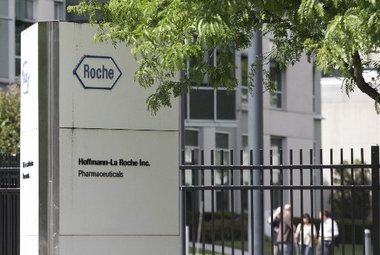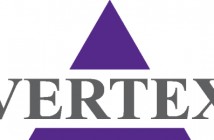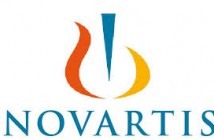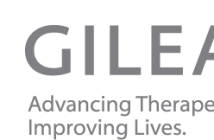The Swiss pharmaceutical company, Roche Holdings AG (VTX:ROG) will pay $8.3 billion in cash to buy InterMune Inc (NASDAQ:INTM).
InterMune is a company that focuses on biotechnology. InterMune is based in Brisbane, California, and currently employs about 450 workers. It holds access to what may be the first drug in the United States that treats a lung disease that can be fatal within 5 years of diagnosis.
The $8.3 billion price tag values InterMune at $74 per share. This valuation is 38 percent higher than the company’s closing price on August 22nd, and is 63 percent more than the company’s closing price on August 12th, which is when the news of the potential sale was first released.
The purchase of InterMune gives Roche access and control of pirfenidone, which analysts and industry experts say will generate $1 billion in sales around the world for the pharmaceutical company. The drug treats idiopathic pulmonary fibrosis, which is an illness that makes the tissues deep in the lungs to become thick and scarred as the disease progresses. Roche is currently the largest manufacturer of cancer drugs, but has faced challenges to expand beyond oncology. This is stopped the development of drugs to treat heart diseases and diabetes in the past few years.
In a statement released by Severin Schwan, the chief executive officer of Roche, he stated that the merger with InterMune will allow Roche to strengthen and grow its pulmonary franchise across the globe. The combination of the two companies is a perfect fit in terms of a portfolio point of view. Schwan expects a smooth transition of the two businesses to make sure they are ready to handle the expected launch of pirfenidone in the United States by 2014.
The purchase of InterMune is the largest acquisition that Roche has made since 2009, which is when it acquired an additional 44 percent stake in Genentech Inc for roughly $46.8 billion. Since then, Roche has paid off about 75 percent of the debt that it owes for making that purchase, and now has more buying power for acquisitions.
Target Purchases
Schwan stated in July that Roche was looking for targeted acquisitions of technologies and products to boost its current diagnostics and drug operations. In the first six months of this year, the Swiss pharmaceuticals company received just under 7.9 billion Swiss francs (about $8.6 billion) of free cash flow.
The company’s acquisition of InterMune is a perfect example of the type of bolt-on acquisition that Roche has been trying to go after. It supplements and extends current products instead of building a huge merger or segregating the company.
Schwan stated in a conference call that the merger is “right on what our M&A strategy is.” The acquisition allows Roche to generate value in an extremely targeted way for investors, patients, and employees.
At the same time as the InterMune deal, Roche was also in discussions about offering a bid for 40 percent of Chu ai Pharmaceutical Co, a Japanese partner of Roche. According to an individual familiar with the matter, the deal in question will offer roughly $10 billion for 40 percent. Earlier this month, the Swiss pharmaceutical company decided not to pursue the deal after the management board of the Chuagi signaled against a bid. Now the Swiss company is whole heartedly focused on the purchase of InterMune.
Partnership
Roche and InterMune had been partners since 2006 working on the development of a drug for hepatitis C.
The locations of the headquarters of the two firms, Roche in Switzerland and InterMune in California, are close together, making it easier for the two companies to integrate.
Other companies in the drug and biotechnology industry have announced deals this year that have totaled to $245.9 billion, which is a huge increase from the $67.9 billion last year. That figure for this year does not include the $117 billion offer that Pfizer made for AstraZeneca plc, which was dropped because of AstraZeneca’s repeated rejections.
Companies are merging with rivals in order to offer a wider range of therapies in certain illness areas where the need for medical treatment is significant, the number of treatment options are few, and the prices of drugs are great. The merger of Roche and InterMune may lead to renewed rumors of a potential offer for Swiss company Actelion Ltd and United Therapeutics Corp from Maryland.
Hypertension Drugs
Both Roche and InterMune make drugs for the treatment of pulmonary arterial hypertension. The disease narrowing the patient’s arteries.
Potential buyers include Roche, Biogen Idec Inc, Gilead Sciences Inc, and Bayer AG.
The executive boards of Roche and InterMune have both agreed to the acquisition, which the companies expect to sign and close by the end of 2014. The payment will consist of cash and newly issued bonds. The merger will not have an impact on next year’s core earnings per share, and will add to the company’s profitability beginning in 2016.
InterMune made a name for itself in the drug making space and attracted buyers, such as GlaxoSmithKline Plc and Actelion, as pirfenidone became closer and closer to being released in the United States.
The drug is also known as Esbriet, and is already being sold on the markets in Canada, Europe, and Japan. The drug would be the first treatment available in the United States that treats a disease that kills over 40,000 Americans annually.
Roche’s Current Line Up
Pirfenidone will join the Roche’s current cabinet of pulmonary drugs. This stable includes Pulmozyme for cystic fibrosis and Xolair for asthma, both of which hit the market over ten years ago. The company is currently developing another promising drug for asthma, called lebrikizumab.
The current sales figures and support staff for Roche is led by its Genentech unit. This branch will boost pirfenidone’s start up in the United States and help get insurance coverage for the drug. The company’s sheer size and reach around the world should also help increase access to the medicine, company executives said.
The United States Food and Drug Administration is also expected to take action by November 23rd regarding the regulatory requirements that the company filed for approval.





Pingback: Biotech Bounce Gets More Fuel From InterMune Deal – Forbes | Singaporenewsjournal.com
Pingback: albuterol inhaler
Pingback: female viagra pills
Pingback: chloroquine otc
Pingback: buy viagra lowest price
Pingback: buy chloroquine phosphate
Pingback: mymvrc.org
Pingback: Viagra 100 mg coupon
Pingback: Viagra 200 mg cost
Pingback: Viagra 120 mg coupon
Pingback: Viagra 200mg generic
Pingback: Viagra 200mg without a prescription
Pingback: Viagra 200 mg cost
Pingback: Cialis 80mg purchase
Pingback: Cialis 60 mg for sale
Pingback: how to purchase Cialis 60mg
Pingback: order Cialis 60 mg
Pingback: cheapest sildenafil 50mg
Pingback: generic cialis online
Pingback: tadalafil 40 mg cost
Pingback: levitra 60mg without a prescription
Pingback: lasix 40 mg uk
Pingback: aldactone 25mg cheap
Pingback: amaryl 2 mg pills
Pingback: amoxicillin 250mg usa
Pingback: ampicillin 250 mg united kingdom
Pingback: antabuse 500mg coupon
Pingback: arava 20mg cheap
Pingback: where can i buy strattera 10mg
Pingback: cialistodo.com
Pingback: how to buy aricept 5 mg
Pingback: tamoxifen 10mg generic
Pingback: ashwagandha 60caps tablet
Pingback: baclofen 25mg pills
Pingback: Biaxin 250mg cost
Pingback: how to purchase Premarin 0,3mg
Pingback: catapres 100 mcg pharmacy
Pingback: ceclor 250mg cost
Pingback: ceftin cheap
Pingback: celebrex over the counter
Pingback: celexa 10mg nz
Pingback: cephalexin 500 mg cheap
Pingback: claritin medication
Pingback: slots real money
Pingback: casino gambling
Pingback: vegas casino online
Pingback: casino online
Pingback: hollywood casino online
Pingback: rivers casino
Pingback: casino game
Pingback: hard rock casino online
Pingback: real money casino
Pingback: real money casino
Pingback: online car insurance quotes instant
Pingback: everest car insurance quotes
Pingback: safecar insurance
Pingback: car insurance quotes estimate
Pingback: everest car insurance quotes
Pingback: met life auto and home
Pingback: auto club insurance
Pingback: car insurance quotes renewal
Pingback: cheap car insurance quotes in florida
Pingback: best insurance for young drivers
Pingback: personal loans for bad credit
Pingback: payday loans quick loan
Pingback: payday loans online no credit check
Pingback: installment loans no credit checks
Pingback: instant quick loans
Pingback: payday loans near me
Pingback: personal loans maryland
Pingback: best cbd oil for cancer for sale
Pingback: what is cbd oil used for
Pingback: best cbd oil on amazon
Pingback: cbd oil for sale
Pingback: cbd oil full definition
Pingback: cbd hemp oil benefits amazon
Pingback: cbd oil for sale online
Pingback: writing my essay
Pingback: buy pre written essays
Pingback: custom essay writing services reviews
Pingback: best college essay writing service
Pingback: define assignments
Pingback: how to writing essay
Pingback: my paper writer
Pingback: best essay writing service uk
Pingback: custom essay writing services reviews
Pingback: buy an essay online
Pingback: cleocin tablets
Pingback: clomid no prescription
Pingback: clonidine without prescription
Pingback: cheapest clozaril 25mg
Pingback: colchicine 0,5mg united kingdom
Pingback: where to buy symbicort inhaler 160/4,5mcg
Pingback: combivent 50/20mcg united kingdom
Pingback: cost of coreg
Pingback: compazine 5 mg cost
Pingback: how to purchase crestor
Pingback: dapsone 1000caps tablets
Pingback: depakote 125mg medication
Pingback: diamox canada
Pingback: cheap differin 15g
Pingback: diltiazem price
Pingback: doxycycline nz
Pingback: dramamine 50mg tablets
Pingback: elavil 10mg canada
Pingback: cheapest erythromycin 250 mg
Pingback: etodolac 400mg without a prescription
Pingback: flomax tablets
Pingback: cost of flonase nasal spray
Pingback: garcinia cambogia caps online pharmacy
Pingback: cost of geodon 80 mg
Pingback: hyzaar for sale
Pingback: imdur 20 mg purchase
Pingback: how to purchase imitrex
Pingback: how to buy imodium
Pingback: go to this site
Pingback: imuran price
Pingback: buy lamisil 250mg
Pingback: levaquin otc
Pingback: lopid tablet
Pingback: lopressor 100mg without a doctor prescription
Pingback: luvox 100mg australia
Pingback: macrobid medication
Pingback: meclizine united kingdom
Pingback: mestinon 60mg nz
Pingback: micardis tablets
Pingback: mobic australia
Pingback: cheap motrin
Pingback: nortriptyline online pharmacy
Pingback: periactin pills
Pingback: phenergan uk
Pingback: plaquenil 200 mg uk
Pingback: order prednisolone
Pingback: prevacid cost
Pingback: proair inhaler tablets
Pingback: procardia united kingdom
Pingback: cheapest proscar 5 mg
Pingback: protonix tablet
Pingback: provigil 100mg tablet
Pingback: where can i buy pulmicort
Pingback: reglan 10 mg usa
Pingback: how to buy remeron 15mg
Pingback: retin-a cream 0.025% united kingdom
Pingback: revatio 20mg for sale
Pingback: risperdal 2mg without a doctor prescription
Pingback: robaxin 500 mg uk
Pingback: rogaine 5% nz
Pingback: seroquel 300mg without a doctor prescription
Pingback: order singulair 10mg
Pingback: skelaxin for sale
Pingback: spiriva 9mcg without prescription
Pingback: tenormin united states
Pingback: cheap thorazine 50mg
Pingback: toprol 50 mg without prescription
Pingback: tricor 200mg pharmacy
Pingback: valtrex coupon
Pingback: verapamil medication
Pingback: voltaren 100mg pills
Pingback: wellbutrin pills
Pingback: zanaflex united states
Pingback: zithromax 100 mg australia
Pingback: important site
Pingback: zocor pharmacy
Pingback: zovirax cost
Pingback: zyloprim 100 mg purchase
Pingback: zyprexa united kingdom
Pingback: zyvox online
Pingback: cheap sildenafil
Pingback: tadalafil without prescription
Pingback: furosemide 40mg no prescription
Pingback: escitalopram 20 mg tablets
Pingback: aripiprazole 10mg canada
Pingback: pioglitazone united states
Pingback: fexofenadine online
Pingback: glimepiride tablets
Pingback: meclizine prices
Pingback: leflunomide without a doctor prescription
Pingback: how to buy atomoxetine
Pingback: donepezil no prescription
Pingback: anastrozole no prescription
Pingback: irbesartan nz
Pingback: dutasteride generic
Pingback: olmesartan online pharmacy
Pingback: buspirone usa
Pingback: cheapest clonidine
Pingback: cefuroxime pills
Pingback: celecoxib 200mg for sale
Pingback: how to buy citalopram
Pingback: cephalexin 500mg otc
Pingback: ciprofloxacin 750 mg prices
Pingback: clindamycin tablets
Pingback: order clozapine
Pingback: cheapest prochlorperazine 5 mg
Pingback: carvedilol 25mg australia
Pingback: warfarin prices
Pingback: rosuvastatin 20mg pills
Pingback: desmopressin mcg australia
Pingback: divalproex pills
Pingback: trazodone 50 mg prices
Pingback: tolterodine 1 mg price
Pingback: acetazolamide 250mg without prescription
Pingback: fluconazole 150mg over the counter
Pingback: phenytoin tablet
Pingback: cheap oxybutynin 5mg
Pingback: doxycycline canada
Pingback: order bisacodyl
Pingback: venlafaxine pills
Pingback: amitriptyline 10 mg without a doctor prescription
Pingback: permethrin united kingdom
Pingback: buy estradiol
Pingback: double dose of cialis
Pingback: fluticasone mcg australia
Pingback: nitrofurantoin united kingdom
Pingback: how to buy glipizide
Pingback: cost of isosorbide 20 mg
Pingback: loperamide prices
Pingback: azathioprine online pharmacy
Pingback: propranolol 10 mg canada
Pingback: indomethacin nz
Pingback: cost of lamotrigine 25mg
Pingback: terbinafine 250mg coupon
Pingback: digoxin 0.25mg tablet
Pingback: how to buy levothyroxine mcg
Pingback: gemfibrozil 300mg canada
Pingback: clotrimazole without a doctor prescription
Pingback: metoclopramide 10 mg otc
Pingback: lilly vidalista voucher